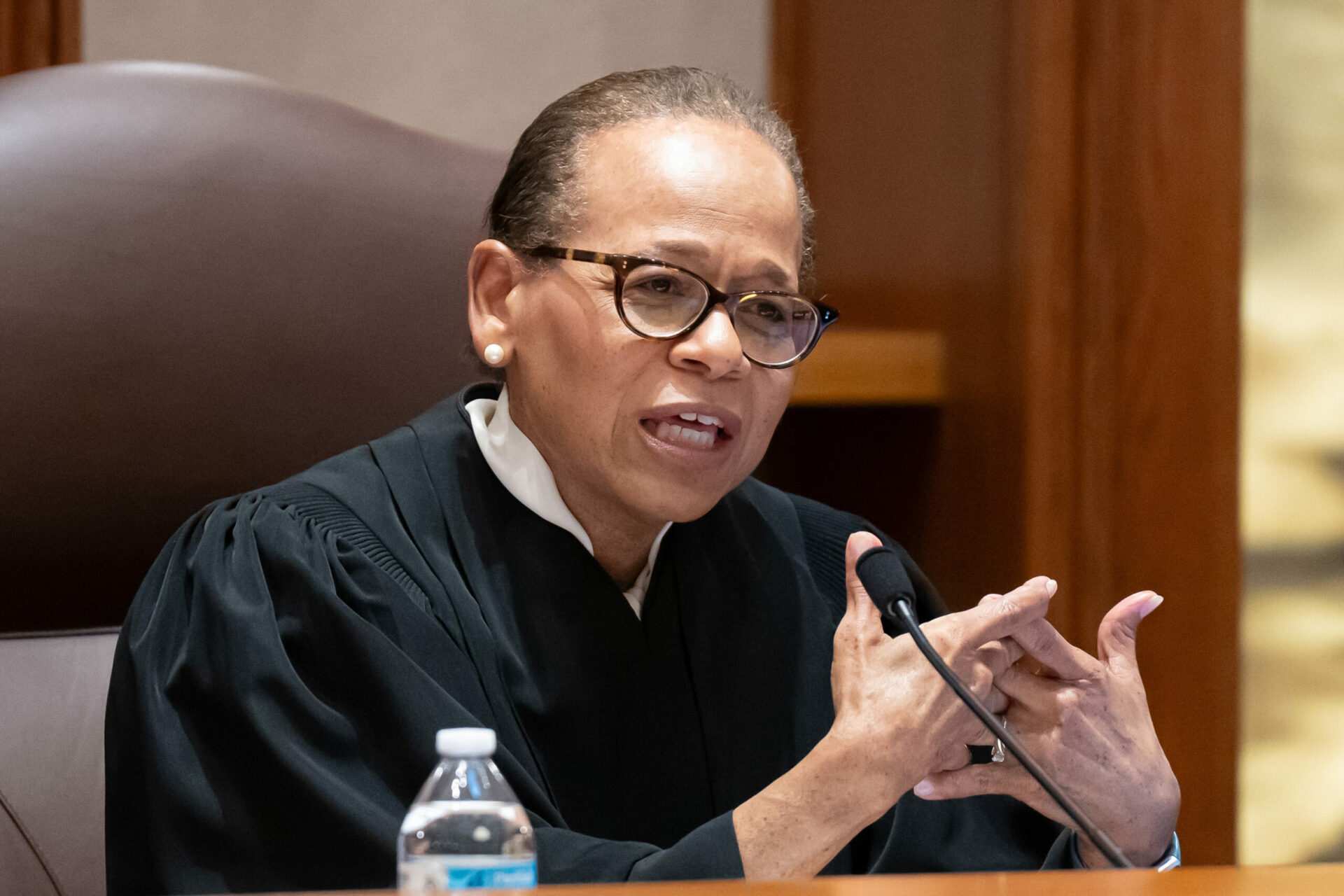
Minutes into a hearing on whether Donald Trump is constitutionally barred from being president again, Minnesota Supreme Court Chief Justice Natalie Hudson jumped in with her biggest concern: There could be “chaos” if some states keep Trump off 2024 ballots while others allow him on.
“Should we do it,” she asked, “even if we could do it?”
It’s a question looming over the growing number of lawsuits seeking to disqualify Trump from another term in the White House because of his efforts to overturn the results of the 2020 presidential election. What began as a largely academic exercise a few years ago over a constitutional ban on “insurrectionists” holding office collided with reality last week as judges in Minnesota and Colorado for the first time heard evidence and arguments.
Lawyers and judges involved in these cases have signaled they believe it’s ultimately a fight for the U.S. Supreme Court to resolve. With state election officials set to finalize ballots in early 2024 ahead of primary contests, the justices soon could be thrust into the election fray.
The cases center on Section 3 of the 14th Amendment, which dates back to the post-Civil War era and prohibits someone from holding public office if they took an oath to support the Constitution and then “engaged in insurrection.” The legal fights over Trump’s eligibility post a range of largely untested questions: Can courts enforce the disqualification? Does the measure apply to the conduct of a president? Was the Jan. 6, 2021, attack on the U.S. Capitol an “insurrection” and did Trump “engage” in it?
Minnesota Voters
Ron Fein, who argued the case on behalf of a group of Minnesota voters, told Hudson that the state court didn’t have discretion to sidestep making a decision. “For better or worse,” he said, the Constitution left it to each state to manage elections. But he tried to allay Hudson’s concerns by assuring her Trump was expected to petition the U.S. Supreme Court if he lost.
The Minnesota Supreme Court didn’t say when it would rule, but a lawyer representing the state’s top election official told the justices during the Nov. 2 hearing that they need the fight resolved by early January to avoid disrupting preparations for the March 5 primary.
The justices “could provide a final answer to the question,” Fein said.
The week’s events highlighted the complications of these cases unfolding in states with varying election laws and court procedures. Minnesota’s case, brought by advocacy group Free Speech for People, began in the state’s highest court. The state justices are poised to rule on core constitutional and state law questions without hearing evidence. Whoever loses can petition the U.S. Supreme Court.
But a full trial is underway in Colorado, where a Denver district court judge spent the week hearing testimony from witnesses as well as arguments on the overarching constitutional issues. Whoever loses would have to first appeal to the Colorado Supreme Court before reaching the nation’s highest court.
In the meantime, more cases are being filed across the country. Judges have tossed out some lawsuits early on for procedural defects, but Trump and his campaign have had to lawyer up months before voters hit the polls. A hearing is set for Nov. 9 before a Michigan Court of Claims judge on Trump’s effort to get ballot contests tossed out in that state, including one brought by the same advocacy group litigating in Minnesota, Free Speech for People.
Untested Questions
The insurrection disqualification language was ratified in 1868. It was part of a post-Civil War effort by Congress to address the political futures of people who supported secession and the Confederacy.
Interest in Section 3 surged after the Jan. 6, 2021, attack on the U.S. Capitol. Constitutional scholars debated whether the language was still operative and whether it could apply not only to elected officials who participated in the assault, but also politicians who played a role in the events leading up to it, including Trump.
An early round of court cases yielded mixed outcomes. Citizens for Responsibility and Ethics in Washington, or CREW, succeeded in ousting Cowboys for Trump founder Couy Griffin from his post as a county commissioner in New Mexico. Griffin had been found guilty of a misdemeanor federal offense for illegally being in a restricted area.
But other courts rejected efforts to invoke Section 3 to block several Republican members of Congress who backed Trump after the 2020 election from running again in the 2022 midterms. Those cases never reached the Supreme Court and didn’t set precedent that would rule out the possibility of future legal fights.
CREW is involved in the Colorado case along with other attorneys. Their trial presentation before Denver District Court Judge Sarah Wallace included testimony from police officers who responded to the Capitol violence, a sociologist who has studied Trump’s influence on far-right extremists and a 14th Amendment expert who said the historical record supported a broad reading of what it meant to engage in insurrection, including words of incitement.
Trump’s lawyers argued that the case is an effort to interfere with the democratic process. They disputed that the events of Jan. 6 were, in fact, an insurrection. And, regardless, they said, Trump couldn’t have “engaged” through the political speech at the heart of the case – his claims of election fraud, his exhortations to his supporters to come to Washington on Jan. 6 and his speech at a rally that morning.
Another lawyer for Trump pressed similar arguments before the Minnesota Supreme Court on Thursday and urged the justices to stay out of the business of deciding “who can or can’t be president.”
___
© 2023 Bloomberg L.P
Distributed by Tribune Content Agency, LLC.
TK
Source: American Military News Rephrased By: Trump Knows